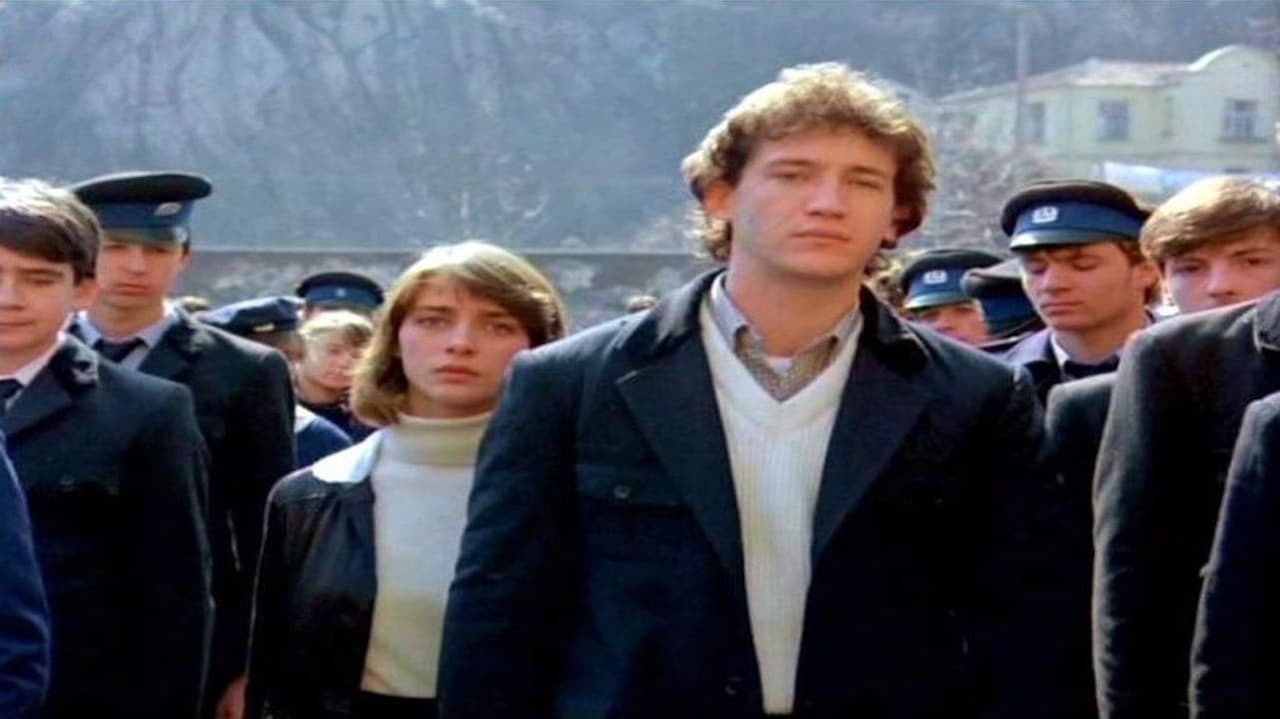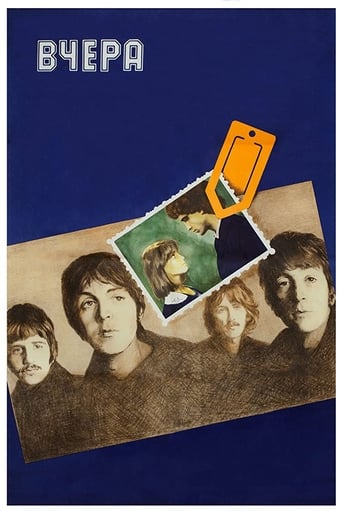



Plot so thin, it passes unnoticed.
It's the kind of movie you'll want to see a second time with someone who hasn't seen it yet, to remember what it was like to watch it for the first time.
View MoreThe movie is made so realistic it has a lot of that WoW feeling at the right moments and never tooo over the top. the suspense is done so well and the emotion is felt. Very well put together with the music and all.
View MoreOne of the best movies of the year! Incredible from the beginning to the end.
View MoreI love this movie.It's brilliant. It shows very well that period of time in Bulgaria and how life went through for the students of the English High School. My mother went to school there during the late 60ies early 70ies and many of the stories she told me, are quite similar to the story line of the movie. I think the characters are very well developed. Great Story line...great music, and the perfect ending. I really like this movie. It's one of my favorites!! I highly recommend seeing it...though there are some imperfections and some funny acting(the teacher that is English, w/ a very strong Bulgarian accent and so forth)...but as a whole I think it's definitely worth watching if you get the chance. I wish I could find it with English subtitles. So far I haven't been able to...anyway..I just wish I could play it for my college friends.
View MoreThanks mainly to the superb acting of many members of the cast, especially that of Bulgaria's secret weapon, Hristo Shopov, "Vchera" ranks high among the world's film classics. Unfortunately, Shopov's acting ability and fine, expressive face have been hidden for too long from true connoisseurs of dramatic acting. Let us hope that his flawles performance as Pontius Pilate in Mel Gibson's amazing and inspiring film "The Passion of the Christ" will earn him much deserved recognition and honors, and will bring him a bounty of great motion picture roles which he so richly deserves. What a tragedy it would be if he were to slip back into obscurity inside Bulgaria. BRAVO, Mr. Shopov!!!
View More"Vchera" (Yesterday: the title refers both to the not so distant past of the late sixties, and to the Beatles' song of the same name: one of the most popular songs among the "progressive" youth in totalitarian Bulgaria) has been a rare success among Bulgarian audience for a number of reasons. One is that it depicts, in a rather amusing form (not all the puns and absurdities in the plot may be easily understandable to people who have not lived behind the Iron Curtain), one of the important clashes in communist countries: one between a youth which identified with a culture considered by the regime as dangerous and decadent, and the people who were charged to defend, and propagate, the values of communism among that same youth: old high school teachers with membership in the Communist Party. The screenwriter and the director, however, made a very successful decision: not to treat the clash from its "ideological" and "political" side, but just to confront the mentality of the two generations. It is not because they are fanatic Marxists that the teachers fight the aspirations of their students for more liberty (and more fun!): it is because it is personally difficult for them to acknowledge that what their own dreams of young people had been twenty years earlier is no longer relevant, out-of-date, old-fashioned, obsolete. "Vchera" is not about politics, it is about the change of generations and the change of values in general.The movie was received with greatest enthusiasm by the generation which was the same age as the characters in the movie, and its exhilarating sincerity was due namely to the crew's nostalgia for their own "yesterday": by the time the movie was produced, 20 years later than the time when the plot was taking place, its authors were in the same situation as their "evil" teachers in the movie: confronted with new values and new uncertainties. The clearest expression of this was the "Oath Song" (Kletva) by the end of the movie: written by the most popular rock-band of the sixties, it is a kind of a belated, and obsolete, anthem of at least two generations of Bulgarian high-school students.
View MoreThis film marks the height of Bulgarian cinema in the XXth century. No other film shows better the social and cultural framework of Bulgarian society just before the end of the Cold War than Vchera. The film itself is about young people coming of age, struggling with the realities and paradoxes of their future adult life in Bulgarian society. Shown is the ferocious competition within the top classes in Bulgarian society, which was otherwise supposed to be class-free. (This competition actually costs the life of one of the film's characters, Rostislav.) Shown is also the inequality in a society where everyone was supposed to be equal. Shown is the impending sexual revolution in a country that was often hypocritical about sexual issues. The cultural background itself is the paradoxical contrast of the semi-military discipline in socialist high schools vs. the libertarian music of the Beatles, the students clad in drab uniforms vs. the Western ideas that were slowly filtering to them, the profanity and oafishness of the school officials vs. Shakespeare's exquisite poetry that was taught in these schools. (The title Vchera means "yesterday" in Bulgarian, the same "yesterday" from Shakespeare's verse in Macbeth: "And all our yesterdays have lighted fools the way to dusty death ..."). For millions of Bulgarians coming to grips with these contrasts, paradoxes, and realities, the film rings very true, which has helped propel it to near-cult status. Given the rapid decline of Bulgarian cinema after the end of the Cold War, it is likely that Vchera will remain one of its peaks for many more years.
View More